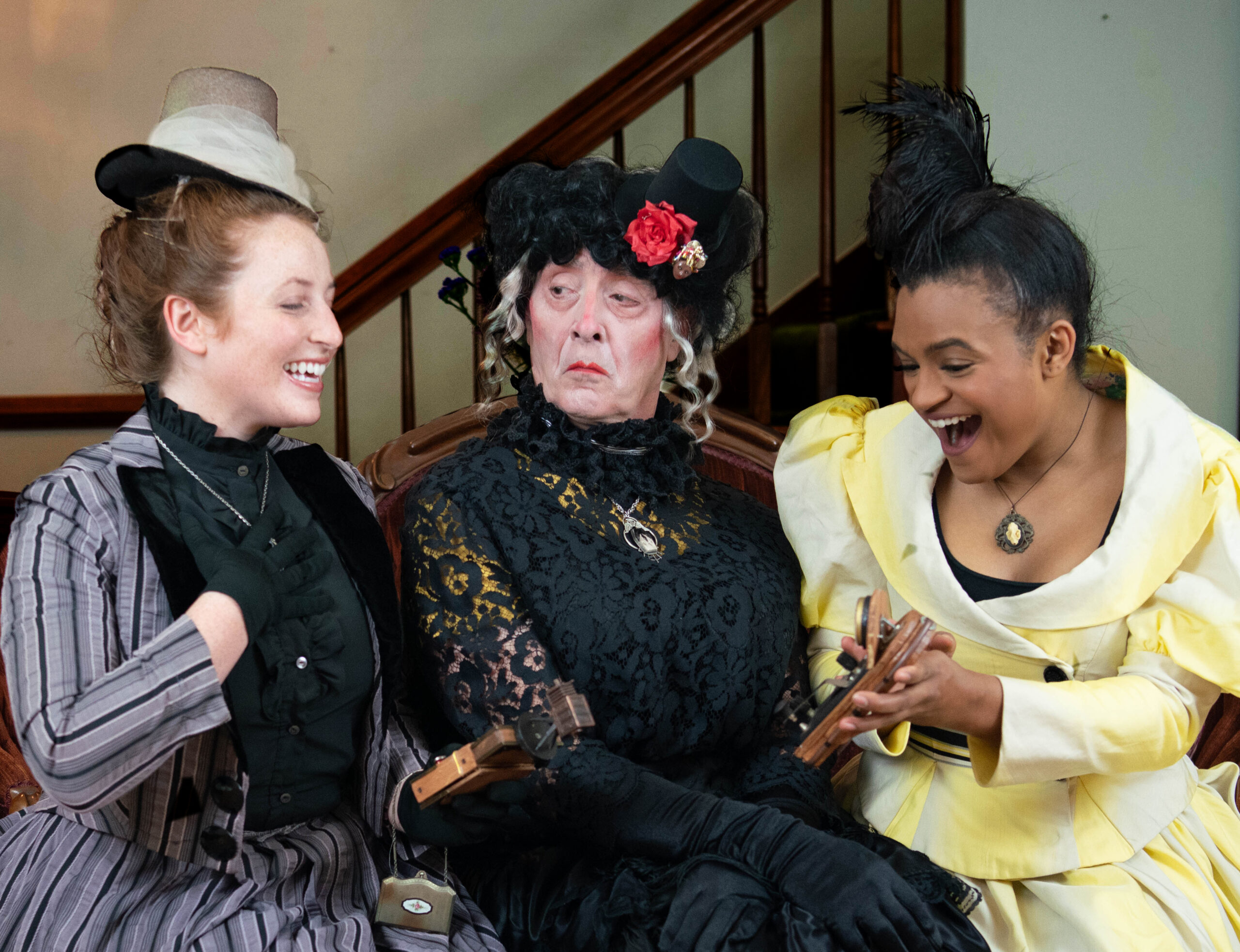Marriage, class, social expectations, double lives, scandal and the lifestyle of the English upper class are targets for satire in Oscar Wilde’s play “The Importance of Being Earnest.” Arís Theatre will perform a new version of the classic at the Academy Theatre in Hapeville from Jan. 7-16. “City Lights” host Lois Reitzes was joined by Arís Theatre co-founder and director Kathleen McManus and actor John Ammerman to talk about this play’s uniquely-stylized romp among the hot messes of English high society.
McManus began the conversation with a handy synopsis. “A young man named Jack likes to come up to town from his country house in disguise as somebody named Earnest, and he cavorts with his friend Algernon,” recounted McManus. “Both of them, it seems, are leading double lives. Jack leads a double life in town, and Algie likes to lead a double life in the country, what Oscar Wilde called ‘Bunburying,’ and it gets them in all kinds of trouble with the women.”
McManus has re-envisioned the play in a surprising stylistic departure — the characters and settings of Oscar Wilde’s play will, for this iteration, live in and embody a “steampunk” universe, a mash-up of the Victorian era, steam-powered mechanisms and the technological accouterment of today’s youth culture.
“I envisioned them with personal phones in their hands,” said McManus, “And so Algy uses his to record pithy expressions, and Gwendolyn is the master and mistress of taking a selfie.” She went on, “Jack was always losing things. His is like an iPhone 4. It’s tiny; he keeps misplacing it … Lady Bracknell also has a personal communication device, but hers is used because she’s trying to put her playlist together for the last party of the season. It’s like a little musical toy. And we have one more surprise up our sleeve — one character is being portrayed by a robot.”
Ammerman portrayed Lady Bracknell, a zealously conservative and humorless Victorian social climber. “She’s the old guard, as it were, as compared to the younger characters in the story. So she obviously represents a number of social and cultural and aristocratic views on certain principles, protocols, etiquette, expectations about how to behave, as well as, in a sense, repressing one’s own human instincts for maintaining behavior and social processes,” said Ammerman.






